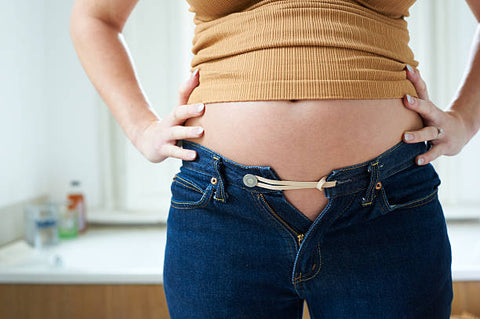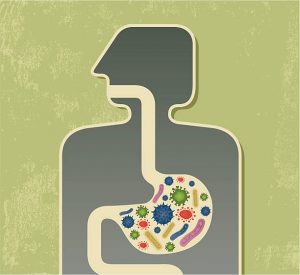Votre panier est vide
Weight Loss Equals Calories In Minus Calories Out? Here’s What The Science Says

You see your friends maintaining their bodies through the years, but they tell you they don’t give a hoot on what they eat and hardly even exercise.
You, on the other hand, have been diligent in cutting down your calories and doing your best to burn those calories out.
It’s frustrating, isn’t it?

For decades, we believe that calories is the key metric to monitor when we want to lose weight, where it’s represented by this simple equation:
Weight change = Calories in – Calories out
We take in calories to give our body energy. When a calorie is processed, it produces the energy we need.
And excess calories get converted into those abominable fats that make us gain weight.
But…
Something’s Not Quite Right With The “Calories In Calories Out” Equation
If cutting calorie intake and burning more calories were entirely correct, eating less and exercising more would have worked for you ages ago.
You may have heard of this old adage “A calorie is a calorie”. Just eat less calories than you burn and you’ll lose weight… Life would have been ideal if it was that simple, wouldn’t it?
Yet, we see so many people eating low-calorie diets for weeks but simply can’t shed their weight.
So scientists went to study why such a simple theory has flopped in so many people. An analysis by Richard D Feinman and Eugene J Fine, from the State University of New York Downstate Medical Center, found something interesting:
Not all calories are the same.
This can be explained through 2 laws of thermodynamics (it’ll be easy to understand, we promise).[1]
The first law of thermodynamics states that all energies, no matter what form they are, are maintained in a balance in this universe. When we say “A calorie is a calorie.” we are assuming only this first law is true.
Simply put, we are assuming a calorie from anywhere will always require the same amount of energy to burn.
But what this statement fails to consider is the second law of thermodynamics: energy must be used for an irreversible change to occur and balance must be broken.
This means a calorie requires a different amount of energy to burn depending on external factors, such as where the calorie came from and how efficient your body is at burning it.
Where Are Your Calories Coming Form?
Your source of calories is a major consideration if you want to eat like those healthy people.
A yogurt or fruit has more calories than a donut.

But… it’s the donut that makes you gain weight instead.
Likewise, 100 calories from a protein is not the same as 100 calories from a carbohydrate. The protein actually has a more complex and dense structure surrounding its calories. Thus, the calories from the protein requires more energy to burn. A bigger portion of the protein’s calories gets lost as heat, unlike the carbohydrate where a bigger portion gets converted to fat.[2]
The worst source of calorie you’d want to consume is refined carbohydrates and other processed foods, where most of its calories are making us obese instead of giving us energy. Go for healthier alternatives like lean meat, fish and avocado instead.
Do not follow the low-calorie diet fad. Your choice of food matters a lot and you should be eating a wide variety of food. This is why some “fit” people are eating so much and seem to be maintaining their weight effortlessly.
Your Hormones Are Tilted By Your Calorie Intake
Hormones are essential to maintain your body functions, especially your metabolism. And they need calories to do it.
Reducing your calorie intake has actually shown to be detrimental to your weight. There was a study where 121 women were randomly assigned to a study that restricted their calorie intake.
Researchers found something unexpected.
The women on restricted diet actually had increased levels of cortisol and felt more stressed, both of which are strong contributors to weight gain.[3]

When you restrict your calorie intake, your metabolism decreases.
That means your body becomes less efficient. You’ll be burning those calories, leaving a bigger remainder to be converted to fat.
Your Gut Flora Affects Your Body’s Efficiency
If you have been ignoring your gut health, it’s time to pay attention to it. Your gut bacteria composition determines how well your body can shed those calories off you.
Scientists have spotted a definitive change in the gut bacteria composition among obese patients, which was observed in multiple studies.
For instance, obese patients were consistently found to have a lowered amount of Bacteroidetes and a proportional increase in Firmicutes.
These 2 bacteria strains are normally maintained in a delicate balance to ensure optimal metabolism in your body. When their proportions are messed up, they start to produce obesity effects instead.[4] When your gut is in bad shape, you simply can’t burn those calories out.

On a positive note, scientists have also identified 3 probiotic bacteria strains that triggered their patients to burn their calories instead. Click here to read the study.
Your Body’s Metabolism Has Been Altered By Your Genes
In order to lose weight, your body needs to carry out metabolism which burns those calories. But if you’re stuck with stubborn fat, your body’s metabolism could already be impaired.
And It’s not exactly your fault that your body can’t burn calories efficiently like other people. It’s just that your genes have been affected.
For instance, Researchers from the University of Cambridge discovered that our bodies possess this gene called Kinase Suppressor of Ras 2 (KSR2) gene.[5]
If this gene is mutated, your body cannot perform its metabolism function well. Your body processes your calories at a much slower rate than your healthy friend. This is even more so as you age, where your genes are more likely to be mutated.
Such mutations in your gene predispose you to obesity. They dampen your efforts in reducing calorie intake.
What Should I Do To Lose Weight Then?
This “calories in calories out” theory is much more complex than it appears. With so many external factors involved, you can’t just cut down your calories alone to lose weight.
While you can’t avoid calories, you can still improve how your body burns those “calories out”.
To make the best of your weight loss efforts, you want to expend more calories without affecting your calorie intake. In fact, Japanese scientists have discovered 3 strains of probiotics that will trigger your body’s full metabolism.
References
1. “A calorie is a calorie” violates the second law of thermodynamics: https://www.ncbi.nlm.nih.gov/pmc/articles/PMC506782/
2. Pathways to obesity: https://www.ncbi.nlm.nih.gov/pubmed/12174324
3. Low Calorie Dieting Increases Cortisol: https://www.ncbi.nlm.nih.gov/pmc/articles/PMC2895000/
4. New-found link between microbiota and obesity: https://www.ncbi.nlm.nih.gov/pmc/articles/PMC4644874/
5. Novel genetic mutations cause low metabolic rate and obesity: http://www.cam.ac.uk/research/news/novel-genetic-mutations-cause-low-metabolic-rate-and-obesity
